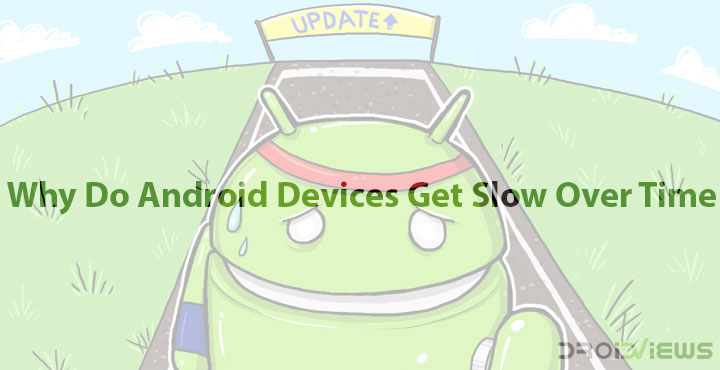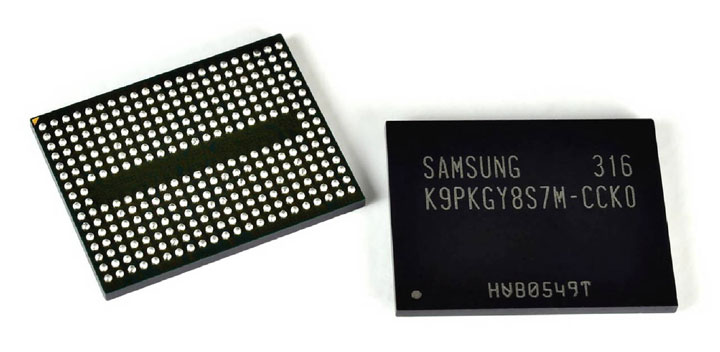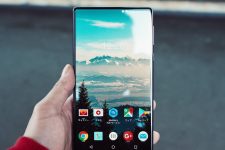
If you’ve been alive these past few days you know how Apple admitted to slowing down their iPhones. This raises many questions such as do they even have the right to do so? The more immediate question was do other manufacturers do this too? HTC, LG, Huawei, and Samsung have all come out to say that they don’t. But the fact is that Android phones do tend to slow down over time and if it’s not the manufacturers, what is it? Why do Android devices get slower over time?
Unless you’re someone who changes smartphones every 6 months or so you have definitely felt that loss of performance. This effect is even more pronounced if you keep a device for more than a year. You may notice some stuttering here and there, apps will take longer to load, and unfortunately, this is all normal. This isn’t necessarily a problem unique to Android either. You may have experienced this on your PC if you have a Windows PC. So you can be assured this isn’t a conspiracy to force you into buying new phones.
There are quite a few reasons this can happen. It could be because of the way you use your device even. Over time as you keep on adding apps it will surely drive the performance down. But here we won’t discuss such reasons that are easily avoidable because they aren’t reasons that affect most people. I mean everyone must know adding more and more apps will result in slower performance right? We’re also not going to discuss the psychological aspect because that’s all in a person’s mind. Apparently, the search traffic for “phone slow” spikes after a newer phone is launched.
That can be easily explained too. Consider that you bought a brand new flagship phone but 6 months or so down the road a friend or family member buys one that just came out. Suddenly, your device can now feel a little slower after having seen the performance of the brand new device. But be assured, it’s not all in your head.
Don’t miss: Android Myths and Facts: Busting 10 Urban Legends
OS Upgrades
This is a pretty normal phenomenon in the Android world where the OS version your device shipped with gives you the best performance. This does not happen with every Android device but this happens with most of them. Upgrading to a newer version of Android decreases the performance despite the update claiming to increase it.
Unlike Apple though, Android OEMs don’t necessarily need to slow your phone down. The new OS was never developed with your devices year old specs in mind. It was developed for the latest set of specs. Therefore it is definitely heavier, thanks to more features, and is not as optimized for your device’s hardware. A newer version thus requires more processing power and system resources.
App updates
Android users are generally like a thirsty man in a desert when it comes to OS upgrades. You’re lucky if you get one. Although things are improving it seems, there are still be so many users who never do get an OS upgrade. Yet, their Android device slows down. That’s because most users update their apps. And apps, like operating systems, are pieces of software that are constantly improving. Most of your favorite apps receive updates and the ones that don’t usually get ditched by users over time.
With new features, the app, of course, will require more resources in order to operate. Take the Facebook app for example. The Facebook app has always been a resource hungry b… bloated app. Still, if you were to run the Facebook app from 2014 on your smartphone today, it would run rather smoothly and not take as much space as the latest version does. And this is when developers are constantly trying to improve the efficiency of their apps. I remember when the Facebook app using 60-70 MB of my RAM was a big deal to me. Now it crosses 300MB like it’s Usain Bolt crossing the finish line.
While the difference in an app may not be as pronounced over the course of just one year, remember there are more than just one app on your phone. Collectively these can affect the performance significantly. App updates are so common that almost every time I plug my phone to charge and leave, something or the other has been updated by the time I come back. What can one do about it? Not update apps. But that would be like staying in 2017 with your phone when the world moves on.
Memory degradation
Even if you do decide to preserve your phone in time, stopping any OS upgrades and disabling app updates, that won’t do much. Maybe your phone won’t slow down as fast as others but it will eventually. That’s because Android devices, or mobile devices in general, run on flash memory. This is a type of non-volatile solid-state-drive or SSD with no moving parts. There are two kinds of flash memories, NAND and NOR named based on the type of Logic gates they use. Long story short, NAND is the most common type of flash memory used everywhere, not just on Android devices, because it’s more affordable.
Being affordable does bring its disadvantages though. While NAND is fast, it grows slower as it fills up. NAND needs a certain amount of free blocks in order to operate at full speed. Of course, this can easily be avoided by not filling it up. As long as you have 25% of your device’s internal storage free you shouldn’t face any lag due to the flash memory.
The real problem is that NAND memory degrades with use. There is a fixed number of write cycles that a NAND memory can provide before it just stops working. NAND memory is further divided into three types and all of these have a different number of write cycles but each of these does have a limit. Avoiding this write cycle is not possible because your device is always writing data onto the flash drives when you use it and even if you don’t.






Join The Discussion: